Top five teams with most Constructors' Championships in F1 history

Current leaders, Red Bull, don't feature on the list.
A team's success in Formula 1 gets defined by its eras. F1 introduced the Constructors' title eight years after the inception of the motorsport in 1958. Back then- the Constructors Championships was called the International Cup for F1 Manufacturers. Since then, the rules have evolved, as did the sport.
Earlier, the best-placed car would exclusively add points to the constructors' standings. Imagine if that rule withstood the test of time! Not only have the rules changed, but the additional measurement regarding safety has become much more prevalent than the focused spectacle. Many teams had lost great drivers prematurely because the sport failed to implement protocols.
Back to the initial idea of constructors' titles, do you know which F1 teams have racked up the most constructors championships in F1 history? Let's take a look!
5. Lotus- 7 titles (1963, 1965, 1968, 1970, 1972, 1973, 1978)
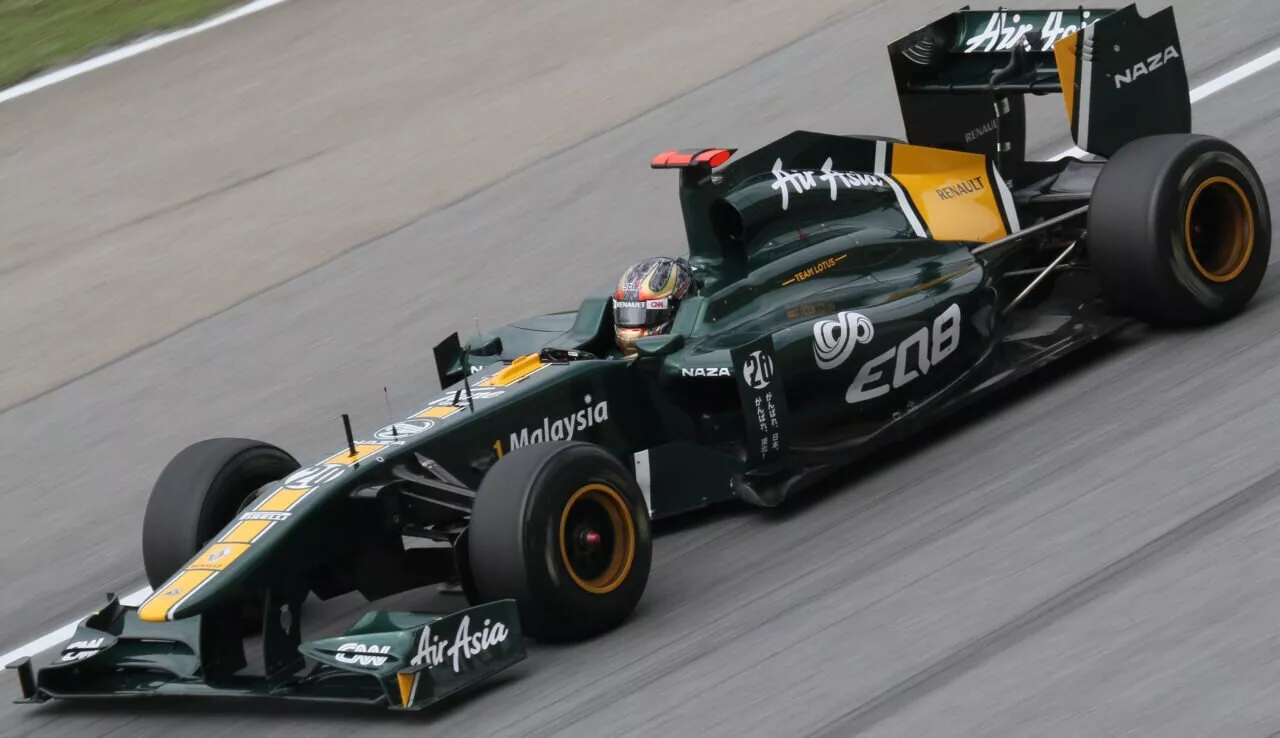
The now-defunct Colin Chapman's Lotus entered the world of Formula 1 at Monaco in the same year- when the Constructors' championship came into being. It took them five years to win the first constructors' title. The Scottish driver Jim Clark led the team to win two driver championships, alongside Lotus' success.
They failed to win the title in 1967, but by the end of the season, the Lotus 49 and the DFV engine were mature enough to make the Lotus team dominant again. Despite Lotus losing the exclusive rights to use the DFV alone, Graham Hill commenced strong during the season. It gave the Norfolk-based outfit its third constructors title in the 60s.
The next decade would bring more success as Lotus managed to add four more titles to its illustrious reputation. Wins in 1972 and 1973 led by Emerson Fittipaldi gave Lotus four wins in six years. Perhaps their most famous title victory came in 1978. However, aside from the glory on track, their decade of dominance was marred by the tragic deaths of their two drivers, Jochen Rindt (1970) and Ronnie Peterson (1978).
4. Mercedes- 8 titles (2014, 2015, 2016, 2017, 2018, 2019, 2020, 2021)
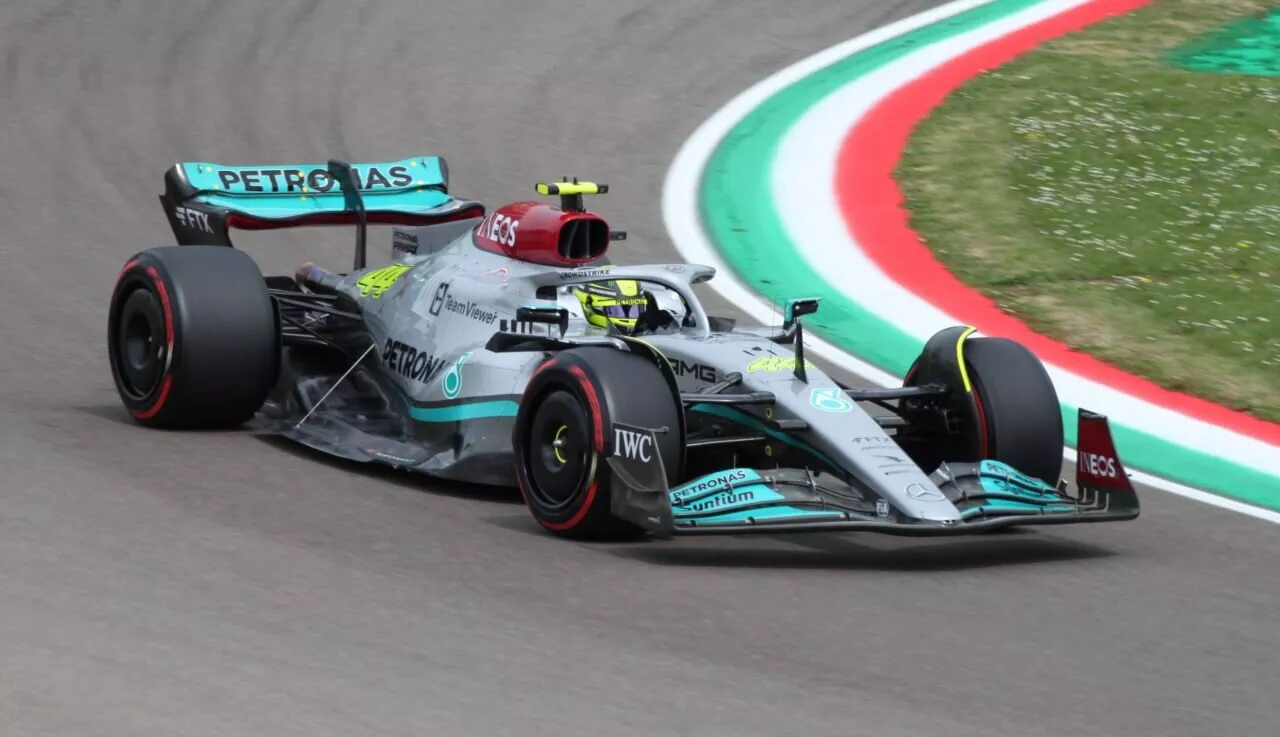
Mercedes has ruled the sport of Formula 1 singlehandedly over the better part of the last decade. The German team once had Juan Manuel Fangio driving their ranks and winning titles between 1954 and 1955. The team folded initially after two seasons to create an absence of over half a century before making their thumping return to the pinnacle of motorsports in 2010.
Mercedes bought out Brawn GP and rebranded them after their one-hit-wonder season. Michael Schumacher bailed on his retirement plans to accept the tempting offer to return to the grid, driving for a German team alongside fellow national Nico Rosberg.
The team did well upon their return, but to hit the next level, they convinced Lewis Hamilton enough to acquire his signature and start an unprecedented journey of dominating the sport. Meanwhile, the new rules helped usher in the V6 turbo hybrid era.
Over the next seven seasons, the outfit left no stone unturned in winning everything, in the process with Rosberg, Hamilton, and Valtteri Bottas. With seven consecutive Drivers' and Constructors' championships in the bag, Mercedes surpassed Ferrari's reign of terror between 1999 and 2004. The Silver Arrows made the sport boring by being exceptionally brilliant in their engineering of cars complementing their equally talented driver line-ups. The eighth constructor title put them as the joint-third most successful F1 team in history, level with McLaren (but behind on driver titles).
3. McLaren- 8 titles (1974, 1984, 1985, 1988, 1989, 1990, 1991, 1998)
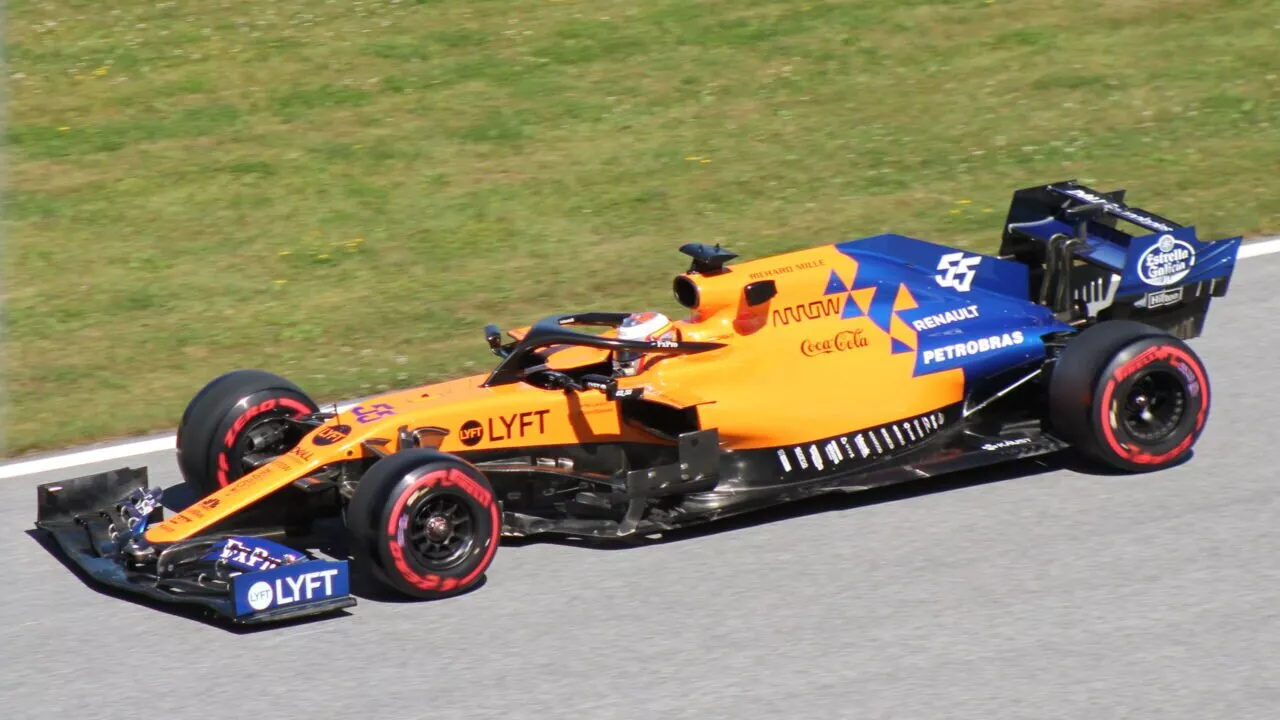
Founded by Bruce McLaren in 1963, McLaren appeared first at the Monaco Grand Prix in 1966. Emerson Fittipaldi was most consistent behind the wheel during a season where McLaren used three cars. Success followed, and they bagged their first constructors' championship in 1974.
In 1984, McLaren went all guns blazing by pairing Alain Prost and Niki Lauda. It was arguably the best driver line-up ever. This pairing propelled the outfit to new levels of success, making them elite and adding royalty to their stature. These two produced the closest-ever contest in the history of the drivers' championship, with the Austrian prevailing by just half a point despite winning fewer races and suffering more retirements.
Prost won the following year's title comfortably, giving McLaren their continued success. The Surrey-based outfit's purple patch expanded from 1988-91, when they added four more titles in dominant fashion. During this period, Ayrton Senna and Alain Prost arguably established F1's most famous rivalry.
Over the next thirty years, McLaren would find one rare success as a constructor, with Mika Hakkinen leading them to their last-ever constructors' title in 1998. Now, the team regularly battles for 4th in the team rankings and has been a regular contender for the midfield battles.
2. Williams- 9 titles (1980, 1981, 1986, 1987, 1992, 1993, 1994, 1996, 1997)
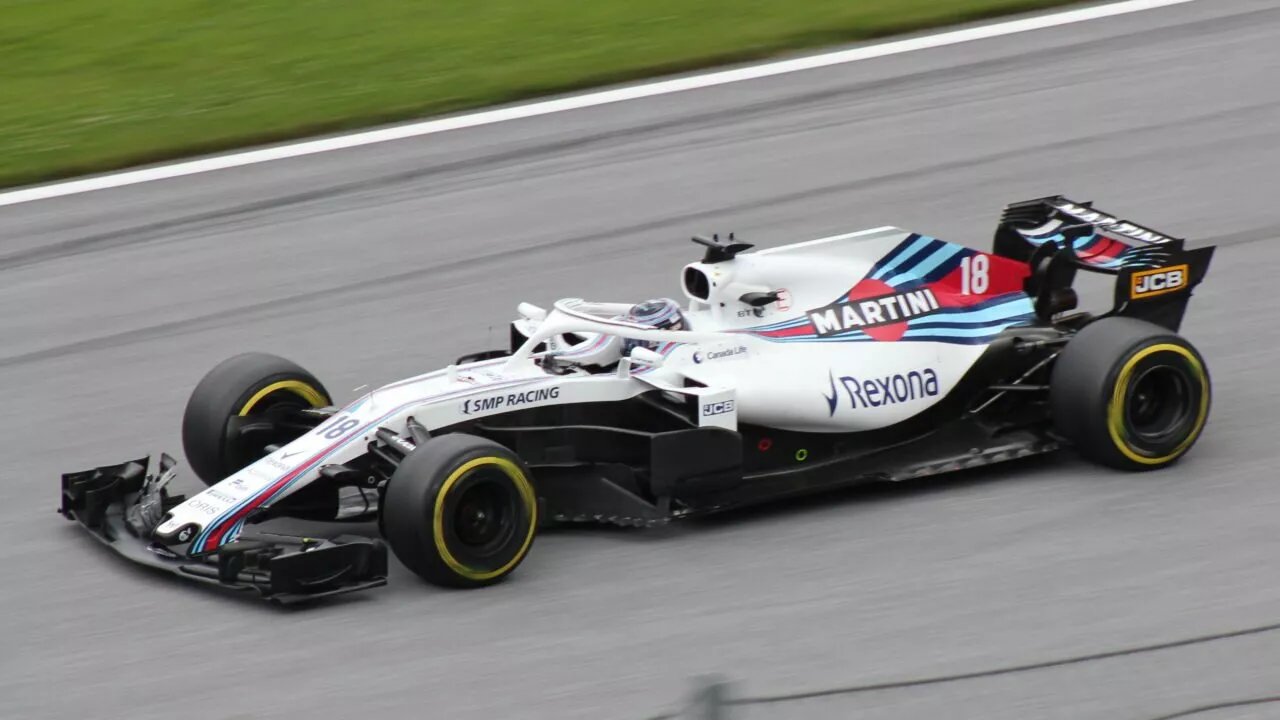
Newcomers watching F1 today only see a shadow of Williams' former self. The Oxfordshire-based outfit basked in the glorious years of the sport, having some of the most remarkable drivers being a part of their majestic successes.
Their history began with owner Frank Williams leading from the front alongside designer Patrick Head developing the cars. They entered as a constructor in 1978 and managed to build an envious machine that helped them secure two back-to-back championships. Williams made their presence felt, achieving the double once more consecutively in 1986 and 1987 with a Honda engine.
A new decade fetched more success at their feet, as Williams secured five constructors' titles in six seasons. Nigel Mansell, Alain Prost, Damon Hill, and Jacques Villeneuve were four different drivers winning the drivers' title with Williams in that spell. Despite winning in 1994, the team had to deal with the unfortunate demise of Senna at Imola. The Brazilian had joined the team that season, and Imola was only his third race.
When Schumacher committed to Ferrari in 1996, Williams continued with a rejuvenated Damon Hill and rookie team-mate Jacques Villeneuve. Hill snatched away the driver's crown as the team dominated the constructors' title with the FW18. It was a shocking season as no one predicted their line-up to thrive.
After another year of dominance, Williams' successes dried up when Adrian Newey departed his position and joined forces with McLaren. Long-time engine supplier Renault withdrew their partnership. Slowly, the team fell back toward the end of the grid with the years passing. The legacy of Williams lives on fragile shoulders today.
1. Ferrari- 16 titles (1961, 1964, 1975, 1976, 1977, 1979, 1982, 1983, 1999, 2000, 2001, 2002, 2003, 2004, 2007, 2008)
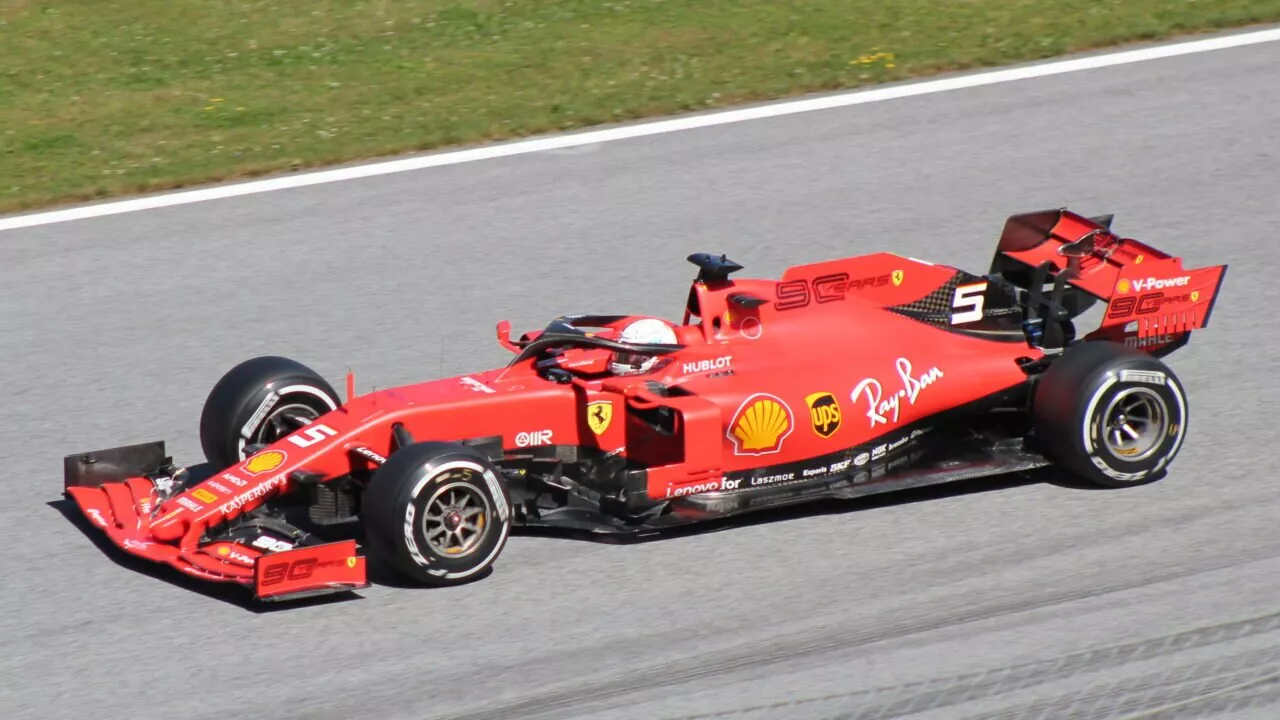
Ferrari is Formula 1's golden goose, having been the most successful team still active and competitive in the sport. In 2020, they celebrated the rare feat of completing 1000 races at the pinnacle of motorsports. It shows how long they have been around F1.
Ferrari's journey began when they won their first constructors' title in 1961. After three seasons, the Prancing Horses unsurprisingly won again. During the 1970s, Ferrari bagged four titles when the team secured a three-peat with Niki Lauda leading them from the front alongside Clay Regazzoni and, later, Carlos Reutemann. Later, Jody Scheckter and Gilles Villeneuve took Ferrari to the title in 1979, followed by two more titles in 1982 and 1983.
After so much success, the team finally hit the ceiling, unable to dominate the grid for 16 years. The team looked visibly frustrated. So in 1999, under the guidance of Jean Todt and Ross Brawn, the Italians kickstarted a decade of unmatched dominance in Formula 1. With Michael Schumacher arriving as their top draw, the team rattled off six titles from 1999-2004. This run elevated Schumacher from a great driver to becoming a legend of this sport.
Their dominance resumed once more to snatch a double in 2007 and 2008, while Kimi Raikkonen won his first driver's world title. The future years were harsh and elusive to Ferrari, coming a close second in the era dominated first by Red Bull and later Mercedes.
Where passion meets insight — blending breaking news, in-depth strategic analysis, viral moments, and jaw-dropping plays into powerful sports content designed to entertain, inform, and keep you connected to your favorite teams and athletes. Expect daily updates, expert commentary and coverage that never leaves a fan behind.